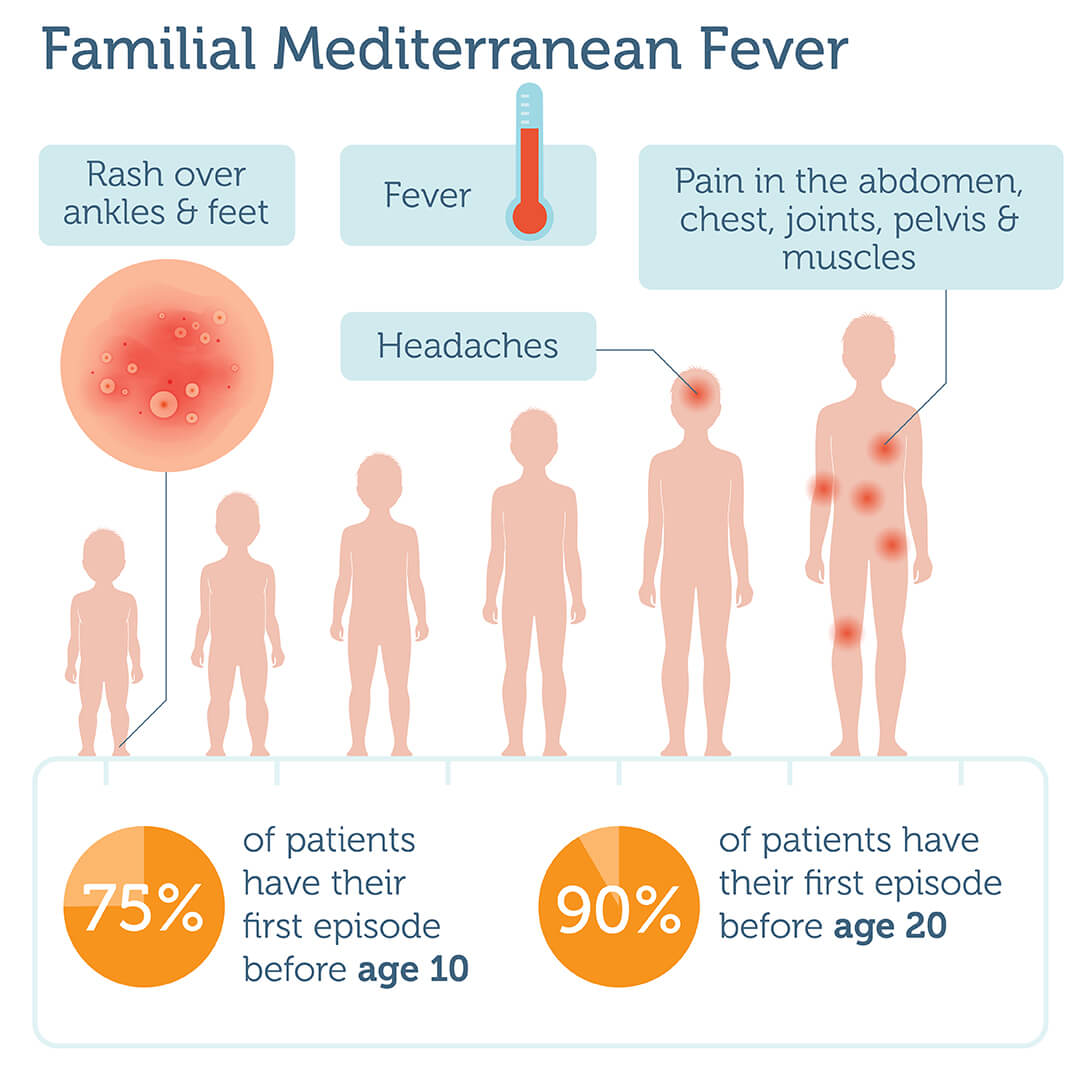Familial Mediterranean Fever
Are you a genetic carrier for Familial Mediterranean Fever? Find out with this DNA Test.
- Detects the MEFV gene variant linked to Familial Mediterranean Fever
- Accounts for 70% of FMM cases in people of Arab, Armenian, Sephardic Jewish and Turkish descent
- 100% private and confidential online results
Already have DNA markers? Sign in and upload your data to view results.
Need to take the DNA Test? Order our easy-to-use swab kit.
Detailed Description
Familial Mediterranean fever (FMF) an inherited autoinflammatory disorder characterized by repeated episodes of fever and inflammation. While this genetic condition can affect people of any ethnicity, it is most prevalent in those of Mediterranean and Middle Eastern descent (Arab, Armenian, Sephardic Jewish and Turkish descent). FMF is caused by genetic variants of the MEFV gene, which provides instructions to make the pyrin protein involved in regulating inflammation.
Inflammation is necessary for wound healing. It is a normal response directed by the immune system, which sends signaling molecules and white blood cells to a site of injury to promote healing. The pyrin protein found in white blood cells play a role in turning off the inflammatory response once it is no longer necessary. People affected with FMF produce abnormal pyrin proteins, disrupting its normal function. In the absence of pyrin protein inflammation is not appropriately regulated, resulting in the characteristic symptoms of FMF.
Take this test to find out whether you are at risk of developing FMF. Early identification is key, because if left untreated it can lead to organ damage.

The Genetics
FMF is caused by genetic variation in the MEFV gene. People with the genetic variant produce abnormal pyrin, which affects its ability to regulate inflammation. FMF is inherited in an autosomal recessive pattern, which means two defective copies of the MEFV gene must be inherited in order for the disease to manifest.
This test looks at seven genetic variants, which account for at least 70% of FMF cases in people of Arab, Armenian, Sephardic Jewish and Turkish descent.

Variants Tested
This test looks at a genetic variants of MEFV gene linked to the Familial Mediterranean Fever.
- rs28940580 G (M680I)
- rs28940578 T (M694I)
- rs61752717 C (M694V)
- rs104895094 C (K695R)
- rs28940579 G (V726A)
- rs61732874 A (A744S)
- rs104895097 T (R761H)
Once diagnosed, treatment options are available to effectively control the fever and inflammation that is characteristic of FMF to prevent organ damage. Understanding your genetic risk can help you determine early on the treatment option that is right for your to manage symptoms of FMF.
Signs and Symptoms of Neonatal Form
Characteristic symptoms include
- Chronic lactic acidosis
- Vomiting
- Diarrhea
- Difficulty swallowing
- Failure to thrive
- Delayed achievement of developmental milestones
- Distinct facial features including prominent forehead, wide nasal bridge, broad anterior fontanelle and arched eyebrows
How It Works
Step 1: Sign up for a free Genebase account.
Step 2: Upload your DNA markers to Genebase.
Step 3: Login to your account to access your results when they are ready.


